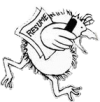Impressive Events
From the moment that you meet your prospective employer at interview, your confidence and suitability is being assessed. This includes the manner in which you present yourself, your body language, your handshake, eye contact and more. Much of our assessment is non-verbal presentation- the way you sit, make eye contact and the non verbal cues you use to answer questions is just as important as your answers.
The employer will be taking note of all the non-verbal cues and rating your confidence. They will assess if you have the confidence and the experience to be successful in the role.
Body Language
As experts in job interview coaching in Sydney we advise you to be mindful of your body language. Sit up straight and look the interviewer in the eye when they speak to you. Beware however not to stare! Look around the room from time to time. Remember to smile! Do not:
- Fold your arms
- Hunch your shoulders
- Fidget
- Put your hands on your face or play with your hair
All these indicate you lack confidence, are very nervous or lacking honesty. Be very aware of what your body language says about you.
Use of Language
While most candidates have some awareness of the body language and its impact on the interviewers assessment, few focus on the language they use at interview and this can give a very different image to the interviewer.
It is important to choose your words carefully. Be mindful that what your say and what the interviewer understands must be identical. As part of our interview training, we teach you not to use jargon unless it is an accepted technical term, avoid generic terminology unless clearly defined and use confident language. Avoid words such as probably, maybe, had to and perhaps. When discussing your experience avoid the words we or you because the interviewer needs to understand what was your role and contribution to the situation. When considering and preparing your responses, where possible tape your responses and listen to the language you use. This will help you to start eliminating some of the language which makes you sound unsure. Avoid the use of umms and aahs as much as possible.
Consider each question carefully before responding. Avoid rushing your answers. Give a thought out response to each question. Talk normally and ask your interviewer to clarify the question if you are unsure.
When responding to a question always start from a positive perspective,
Ask Questions
Only ask questions if you have a genuine question do not ask a question just because you think you should.
Visualise Your Interview
As professionals in interview skills training we suggest you visualise. how your interview will go. Actors and sportspeople all use visualisation techniques to help them succeed in their careers. Visualising works for job interviews too. Close your eyes and imagine yourself presenting confidently. In doing this focus on both your body language and your language. Think of a time when you have interviewed well before and feel the energy of this meeting when you visualise.
Dress Appropriately
Dress appropriately for the role. Wear an outfit that makes you feel confident.
Have a Positive Outlook
Remember a key influence on interview success is your mindset. If you go into the interview believing 'this is the job for me' you will present with confidence.
Our job interview coaching and skills training in Sydney will help you to secure that job, whether you are new to the workforce, looking to change jobs, or entering a completely new career. Contact us for more information today.
© 2026 Impressive Interviews. All Rights Reserved.

